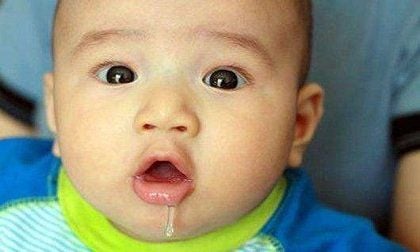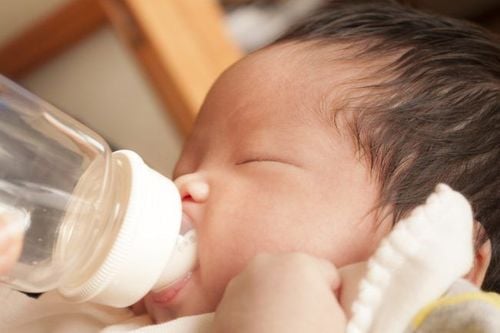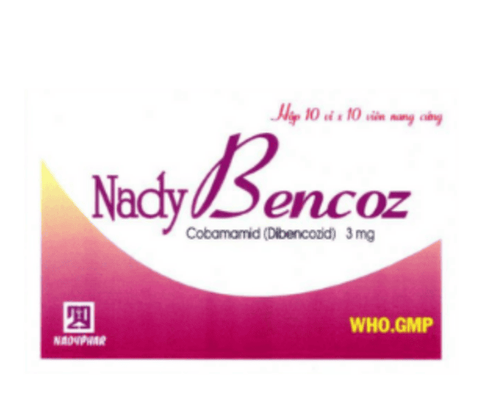This is an automatically translated article.
This article is professionally consulted by Resident Doctor of Pediatrics - Neonatology - Department of Pediatrics - Neonatology - Vinmec Hai Phong International General Hospital.
Teething in children is a process that lasts up to several years, during the time when children are teething, there will be changes that parents need to pay attention to to take good care of their children. So what are the issues parents need to pay attention to during this time?
1. When your baby is teething
When do babies teeth? It is always a question that many parents ask and care about. Most babies get their first tooth between 6 and 10 months old. Teeth begin to develop while the baby is in the womb. When you're pregnant, your baby has developed tooth buds, the foundation for baby teeth. It is very rare for a baby to be born with one or two teeth, or to develop one in the first few weeks of life.
If your baby's teething time is early, you can see the first tooth (usually the tooth is located in the bottom center) as soon as 3 months. In other cases, you may have to wait until your baby is at least a year old for this to happen.
Most babies get their new teeth in order: two in the bottom center first, then two in the top center, followed by the teeth along the sides. The last teeth to appear are the second molars, found at the back of the mouth, top and bottom. They will probably start until the baby is between the ages of 23 and 31 months. Soon, your child will have all 20 baby teeth.
2. Signs of teething babies
Some babies experience teething discomfort, but many babies don't experience these discomforts. You may notice signs and symptoms of teething such as:
Drooling or a rash on your face Swollen, sensitive gums Irritability or fussiness Chewing or biting Your baby is lazy or fussy when eating Sleep problems Face and ear rubs Although many parents assume that teething has the potential to cause symptoms such as fever, vomiting or diarrhea, there is no scientific evidence to back this up. there. If your baby has a very mild increase in temperature or any other worrisome symptom, call the doctor.

Here are some things you can do to make your baby more comfortable during teething:
Objects used for chewing. Have your child use a teething ring or a wet washcloth in the refrigerator. Do not store pacifiers in the freezer, as frozen pacifiers can harden and damage your baby's gums. Also, do not use necklaces when teething as they pose a risk of suffocation and strangulation. Cold food. If your child is eating solid foods, giving him yogurt, cold apple sauce, bagels or a cool banana can also help ease the pain of teething. However, when your child eats, you still need to pay attention to avoid choking on food. Massage. Wash your hands, then gently rub your baby's gums with your fingers. This can be a good pressure on what your baby perceives from his newly erupting teeth. Analgesic . The use of pain relievers for children when teething requires a doctor's prescription. In some cases, your doctor may recommend acetaminophen or ibuprofen to relieve pain and inflammation. In the case of pain relievers, be sure to check with your doctor for the correct dosage before giving any pain reliever to a child under 2 years of age. Never give aspirin to a child (or rub it into his or her gums). Aspirin can be dangerous to a child, life-threatening if unfortunately Reye's syndrome.
Also, you should not use any over-the-counter teething products, such as gels and creams, on children under 2 years of age. The U.S. Food and Drug Administration (FDA) and other experts warn that topical anesthetics containing benzocaine can cause a rare but serious condition in which the amount of oxygen in the blood drops to an extent. dangerous way. The FDA also recommends against the use of homeopathic teething tablets and gels, because of reported side effects, such as: convulsions and breathing problems in infants and children. .
Use a small age-appropriate toothbrush with a little toothpaste. You should ask your doctor or dentist whether you should use a fluoride toothpaste for your child. If your child doesn't like the taste of a toothpaste he's using, let him or her try another flavor.
When brushing, the baby does not need to be asked to brush in the correct direction. Your baby just needs to try to get rid of all the food particles stuck on his teeth. At around 18 months, babies are ready to start learning to brush their own teeth. You will still have to help as the child will not be dexterous enough to successfully maneuver the toothbrush. When your child is 2 years old, you can start giving him a little more toothpaste, about the size of a pea.
3. Ways to take care of children's teeth
3.1. Take steps to prevent tooth decay from using bottles. Do not let babies sleep with bottles, because the sugar content of formula and breast milk can cause tooth decay in bottle-fed babies. be in contact with the child's teeth all night.
Another way to prevent bottle tooth decay is to switch from bottle to cup as soon as your baby is co-ordinated enough to handle the change. This time is usually around the baby's first birthday..

3.2. Asking for Fluoride Supplements A routine checkup every 6 months is a good time to ask the doctor if your child needs fluoride supplements. Tooth decay-preventing drops are only necessary if the water supply in your area is not fluoridated. At the same time, you should ask the doctor to examine the child's teeth.
3.3. See the dentist Dentists recommend planning your first dental appointment around your baby's first birthday or this can be done within six months of the first tooth erupting. Or maybe it depends on the actual conditions.
3.4. Set food limits Limit foods high in sugar, such as sweets. When children eat foods containing sugar, parents need to pay attention to keeping their children's teeth clean.
4. What if the child has not yet teethed?
If you still don't see any signs of teething by 18 months, tell your doctor or dentist. For babies born prematurely, teething can take several months for this process to take place.
Also, if your baby has all the signs of teething, drooling, swollen gums... call your doctor. Teething is also an overwhelming challenge for a baby.
The time when the child is teething is the period when parents need to pay attention to dental care for their children, because it can affect the quality of their teeth later when the baby is an adult.
If in the process of raising a child, notice that your child shows signs of delayed teething or tooth decay, you should take your child to the hospital to be examined by a doctor and have timely intervention, to ensure the best development. children's development.
Besides, parents also need to supplement their children with essential micro-minerals such as zinc, lysine, chromium, selenium, vitamin B1, ... to fully meet the nutritional needs of children. The addition of these essential vitamins also supports digestion, enhances nutrient absorption, improves anorexia, and helps children eat well. Parents can simultaneously apply dietary supplements and functional foods derived from nature for easy absorption. The most important thing is that improving your baby's symptoms often takes a long time. Combining many types of functional foods at the same time or changing many types in a short time can make the baby's digestive system unable to adapt and completely not good. Therefore, parents must be really patient with their children and regularly visit the website vimec.com to update useful baby care information.
Reference source: babycenter.com













